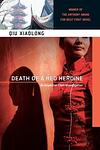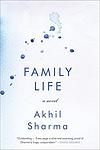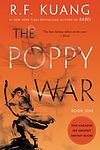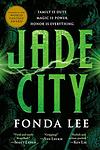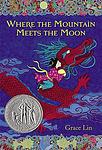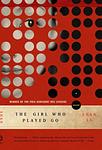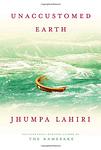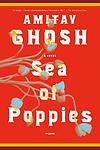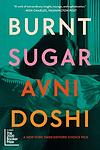The Greatest Indian, Chinese "Fiction" Books Since 2000
Click to learn how this list is calculated.
This list represents a comprehensive and trusted collection of the greatest books. Developed through a specialized algorithm, it brings together 300 'best of' book lists to form a definitive guide to the world's most acclaimed books. For those interested in how these books are chosen, additional details can be found on the rankings page.
Genres
Countries
Date Range
Reading Statistics
Click the button below to see how many of these books you've read!
Download
If you're interested in downloading this list as a CSV file for use in a spreadsheet application, you can easily do so by clicking the button below. Please note that to ensure a manageable file size and faster download, the CSV will include details for only the first 500 books.
Download-
1. The White Tiger by Aravind Adiga
"The White Tiger" is a darkly humorous novel set in modern-day India that explores the country's class struggle through the eyes of an ambitious and cunning protagonist. Born in a poor village, he moves to Delhi to work as a chauffeur for a rich family. He eventually breaks free from his life of servitude by committing an act of shocking violence, and uses his newfound freedom to become a successful entrepreneur in Bangalore. The story, told through a series of letters written to the Chinese Premier, is a scathing critique of India's social and economic disparities, and the corruption that permeates all levels of society.
-
2. Balzac and the Little Chinese Seamstress by Dai Sijie
This novel tells the story of two teenage boys sent to a remote mountain village for re-education during China's Cultural Revolution. There, they meet a local tailor's daughter, who becomes their friend and the object of their shared affection. The boys discover a hidden suitcase filled with forbidden Western classics in Chinese translation, and their lives are forever changed. The books not only awaken their passion for literature, but also allow them to educate the Seamstress, ultimately leading to a heartbreaking love triangle and a tale of personal freedom against the odds.
-
3. The Three-Body Problem by Cixin Liu
The book is a science fiction novel that intertwines the cultural revolution of China with a complex narrative involving astrophysics, virtual reality, and alien contact. It follows a disillusioned scientist who, after suffering personal tragedy during the Cultural Revolution, sends a message into space, only to receive a response from an alien civilization on the brink of destruction. As the aliens plan their migration to Earth, a secret organization works to facilitate the invasion, while a disparate group of scientists and military personnel attempt to understand and prevent the impending extraterrestrial crisis. The novel grapples with themes of human nature, technological advancement, and the vast, often incomprehensible universe.
-
4. The Inheritance of Loss by Kiran Desai
This novel explores themes of love, loss, and the human struggle for identity amidst political unrest. Set in India during the Nepalese movement for an independent state, the narrative follows the lives of a retired judge living in the Himalayas, his granddaughter, and his cook. As the political situation worsens, each character must grapple with their own personal issues, including the judge's regret over his failed marriage and his granddaughter's struggle to find her place in the world. The cook, meanwhile, dreams of a better life for his son in the United States. The narrative weaves together these individual stories to create a poignant tapestry of human resilience in the face of adversity.
-
5. Death Of A Red Heroine by Qiu Xiaolong
"Death Of A Red Heroine" is a crime novel set in 1990s Shanghai, China. The story follows Inspector Chen Cao as he investigates the murder of a young woman, whose body is found in a canal. As Chen delves deeper into the case, he uncovers a web of corruption, political intrigue, and personal secrets that challenge his loyalty to the Communist Party and force him to confront the complexities of modern Chinese society. Through vivid descriptions of Shanghai's changing landscape and insightful commentary on social issues, the novel offers a captivating portrayal of a country in transition.
-
6. Family Life by Akhil Sharma
Family Life is a poignant, semi-autobiographical novel that follows the experiences of an Indian family that immigrates to America in the late 1970s. Their dream of a better life is shattered when the older son suffers a terrible accident that leaves him brain-damaged. The story is narrated by the younger son, who struggles with the pressures of his parents' expectations, the trauma of his brother's condition, and the cultural dislocation of being an immigrant in America. The novel explores themes of family, love, loss, and the immigrant experience.
-
7. Snow Flower and the Secret Fan by Lisa See
Set in 19th century China, the novel centers around the lifelong friendship of Lily and Snow Flower. Despite their different social classes, the two communicate through a secret language known as "nu shu" written on a fan. The story explores the rigid societal norms of the time, particularly the practice of foot binding and arranged marriages. As they navigate through the hardships of their lives, their friendship is tested, leading to a devastating betrayal that impacts their relationship.
-
8. War Trash by Ha Jin
The novel is a fictional memoir of a Chinese soldier who is captured during the Korean War and spends several years in American POW camps. He struggles to survive in the brutal conditions and navigate the political rivalries among the prisoners, while holding onto the hope of repatriation and the fear of being labeled a traitor by his own country. The narrative explores themes of loyalty, survival, and the human cost of war.
-
9. The Poppy War by R. F. Kuang
The book is a fantasy novel set in a world inspired by China's 20th century history. The protagonist, a war orphan, defies societal expectations by acing the empire-wide examination and earning a place at the prestigious military academy. However, her triumph is short-lived as she becomes embroiled in a violent conflict, which forces her to delve into the depths of her own magical abilities, inspired by shamanism. The story intertwines the brutal realities of war, mythology, and the exploration of power in a deeply divided society.
-
10. Jade City by Fonda Lee
In a bustling city ruled by powerful crime families, the Kauls, who possess the rare ability to harness the magical powers of jade, struggle to maintain their control amidst rising tensions and rivalries. As the city teeters on the brink of chaos, the Kaul siblings find themselves caught in a dangerous web of betrayal, loyalty, and ambition, where the fate of their family and their city hangs in the balance. With vivid world-building and intricate character dynamics, "Jade City" is a gripping tale of power, honor, and the price of maintaining control.
-
11. Where the Mountain Meets the Moon by Grace Lin, Janet Song
"Where the Mountain Meets the Moon" is a children's fantasy novel about a young girl named Minli who lives in a poor village at the base of a mountain. She sets out on a journey to find the Old Man of the Moon, hoping he can answer her family's prayers for a better life. Along the way, she meets a talking goldfish, a dragon who cannot fly, and other magical creatures. Through her adventures, Minli learns valuable lessons about gratitude, kindness, and the power of storytelling.
-
12. Death's End by Cixin Liu
In this science fiction epic, humanity confronts an uncertain future as the universe teeters on the brink of destruction. The narrative weaves through time and space, following a complex tapestry of characters and civilizations as they grapple with advanced alien technologies, cosmic dilemmas, and philosophical quandaries. The story explores the depths of human ingenuity and the vastness of the cosmos, culminating in a profound examination of survival, sacrifice, and the indomitable spirit of life in the face of an unfathomable cosmos. With a blend of hard science fiction and imaginative speculation, the novel pushes the boundaries of human understanding and presents a grand vision of the ultimate fate of the universe.
-
13. The Girl Who Played Go by Shan Sa
Set in the 1930s during the Japanese occupation of Manchuria, the novel intertwines the lives of a young Chinese girl, a master of the ancient board game Go, and a Japanese soldier. As the girl seeks refuge from the turmoil of war in the strategy and beauty of Go, she encounters the soldier in the public square where they silently engage in a series of games. The board becomes a silent battleground reflecting their personal and political struggles. Their growing connection and the insights they gain into each other's cultures and vulnerabilities lead to a poignant and tragic conclusion, underscoring the senselessness of war and the transcendent power of human connection and empathy.
-
14. Unaccustomed Earth by Jhumpa Lahiri
"Unaccustomed Earth" is a collection of short stories by Jhumpa Lahiri that explores the lives of Bengali immigrants and their children in the United States. The stories focus on themes of family, love, loss, and cultural identity as characters navigate the challenges of assimilation and the tensions between their American and Bengali identities. The collection is divided into two parts, with the first featuring interconnected stories about the experiences of two generations of a Bengali family, and the second featuring standalone stories that explore similar themes. Overall, the book offers a nuanced and poignant portrayal of the immigrant experience and the complexities of cultural identity.
-
15. The Dark Forest by Cixin Liu
In the second installment of a renowned science fiction trilogy, humanity is faced with an impending alien invasion, set to occur in four centuries. The world turns to the Wallfacer Project, a strategic initiative that appoints four individuals with the power to execute plans to combat the extraterrestrial threat, their strategies hidden even from humanity to prevent the aliens from gaining foreknowledge. One of these Wallfacers, a disillusioned astronomer, devises a complex plan involving astrophysics, sociology, and game theory, all while grappling with the philosophical implications of a universe where survival is predicated on a dark forest theory, where civilizations are hunters lying in wait, ready to strike out of fear and self-preservation.
-
16. Sea of Poppies by Amitav Ghosh
"Sea of Poppies" is a historical novel set in the 1830s, just before the Opium Wars. It traces the intertwined lives of a diverse group of characters, from a raja turned convict, a widowed poppy grower, a French orphan, to a mulatto American freedman, all of whom are brought together on the Ibis, a former slave ship now used for transporting opium. The story explores the social and economic impact of the opium trade, colonialism, and the caste system, while also delving into the personal histories, relationships, and struggles of the characters.
-
17. Q & A by Vikas Swarup
The book is a gripping tale of a young Indian waiter who becomes the biggest quiz show winner in history, only to be arrested for cheating. Through a series of flashbacks and heart-wrenching stories, we learn how his life experiences provided him with the answers to the show's questions. Each chapter reveals a different episode of his past, from his childhood in the slums to various encounters that taught him lessons about love, betrayal, and survival, painting a vivid portrait of the struggle and resilience of life in contemporary India.
-
18. Burnt Sugar by Avni Doshi
This novel delves into the complex and fraught relationship between a mother and daughter against the backdrop of contemporary India. The daughter, now an adult, grapples with her mother's advancing dementia and the bitter memories of a childhood marked by neglect and unconventional parenting. As the mother's memory deteriorates, the daughter is forced to confront the painful legacy of their past and the ambiguity of her filial obligations. The narrative weaves through themes of memory, betrayal, and the inextricable bond of family, painting a portrait of two women bound by love and resentment in equal measure.
-
19. The Association Of Small Bombs by Karan Mahajan
"The Association of Small Bombs" by Karan Mahajan is a novel that explores the aftermath of a bomb blast in Delhi, India. The story follows the lives of two families affected by the tragedy, as well as the bomber himself. Through their perspectives, the novel delves into themes of grief, revenge, and the complexities of terrorism. Mahajan's writing is both intimate and expansive, offering a nuanced portrayal of the human impact of violence.
-
20. Ghachar Ghochar by Vivek Shanbhag
"Ghachar Ghochar" is a compelling novella that explores the dynamics of a close-knit Indian family whose lives change dramatically after a sudden financial windfall. The story, narrated by an unnamed protagonist, examines the moral and emotional complexities that arise from their newfound wealth, leading to tension, corruption, and a disintegration of their former values. The title, a nonsense phrase coined by the family, symbolizes the tangled mess their lives have become - a situation so complicated that it's beyond any solution.
-
21. Djinn Patrol On The Purple Line by Deepa Anappara
Set in a sprawling slum in India, this novel follows nine-year-old Jai and his friends as they embark on a quest to find a missing classmate. As children in their community continue to disappear, Jai takes it upon himself to become a detective, determined to uncover the truth. Faced with poverty, corruption, and a society that disregards their plight, Jai and his friends navigate the complexities of their surroundings while grappling with their own fears and dreams. Through their eyes, the book explores themes of innocence, resilience, and the harsh realities of life in a marginalized community.
-
22. Stay True by Hua Hsu
"Stay True" by Hua Hsu is a collection of essays that explore the intersections of race, culture, and identity in America. Through personal anecdotes and cultural analysis, Hsu examines the ways in which popular culture and media shape our understanding of race and identity, and how individuals navigate these complex and often contradictory narratives. From the rise of Asian American representation in Hollywood to the legacy of Michael Jackson, "Stay True" offers a nuanced and thought-provoking exploration of the cultural landscape of America.
-
23. The Glass Palace by Amitav Ghosh
"The Glass Palace" is a sweeping historical epic that spans over a century, tracing the tumultuous events of the British invasion of Burma and its aftermath. The story follows the life of Rajkumar, an Indian orphan, who rises from the depths of poverty to become a wealthy businessman. His journey is intricately linked with the fates of those around him, including Dolly, a maid in the royal palace, and a host of other characters whose lives intersect across the landscapes of Burma, India, and Malaya. The novel explores themes of love, loyalty, and the impacts of colonialism, while providing a deep insight into the historical and political complexities of the Southeast Asian region.
Reading Statistics
Click the button below to see how many of these books you've read!
Download
If you're interested in downloading this list as a CSV file for use in a spreadsheet application, you can easily do so by clicking the button below. Please note that to ensure a manageable file size and faster download, the CSV will include details for only the first 500 books.
Download



